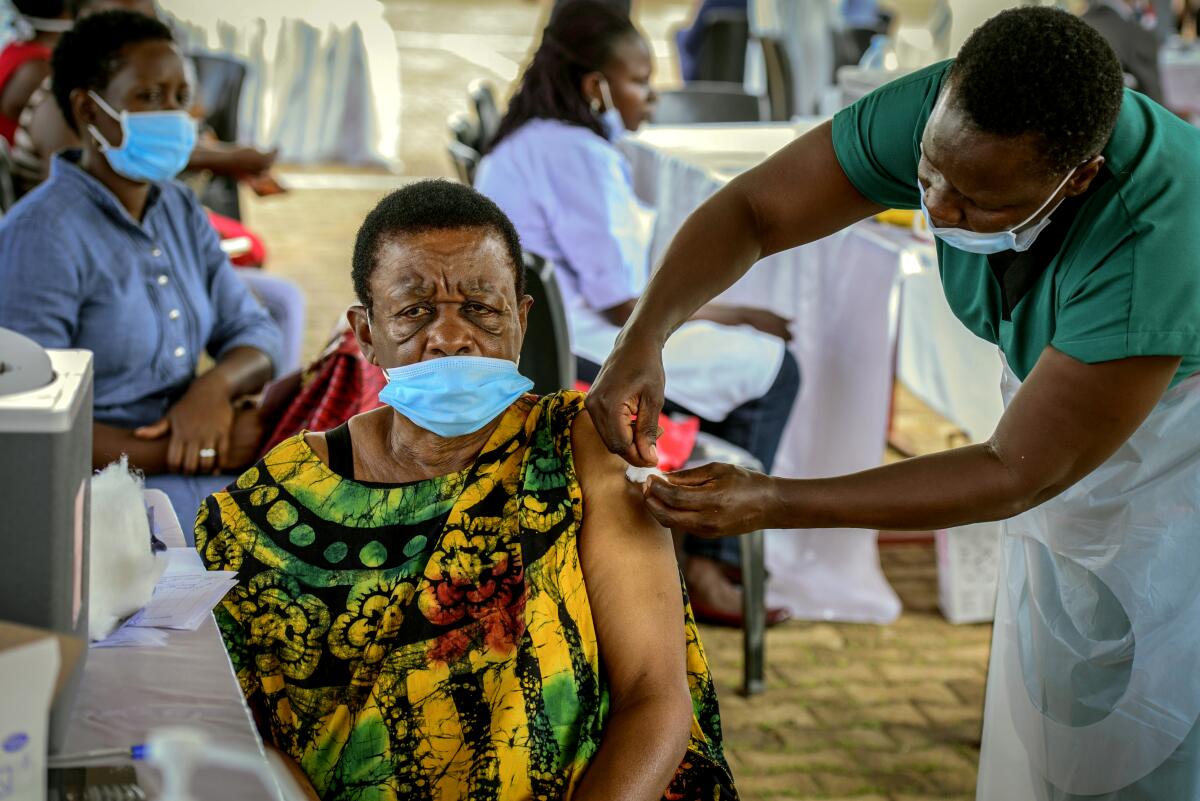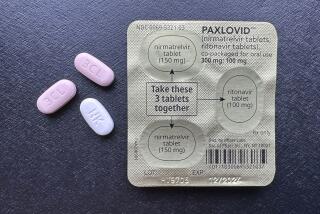Op-Ed: What it will take to keep the next pandemic at bay

It is incredible to think that in November 2020, no COVID-19 vaccine had yet been approved. A year later, more than 7 billion doses have been administered worldwide, preventing countless deaths and helping to turn the tide of the pandemic in many countries. But this scientific triumph is being overshadowed by the failure to ensure that all people benefit from it.
At the time of writing, more than one-third of the world’s population is fully vaccinated. But in Africa, that share is just 6.7%. This is unacceptable, and we must urgently change it. Any threat to global solidarity is a threat to global security and stability.
All governments have a responsibility to protect their own people. But the failure of some governments to share crucial resources — including information, biological samples and tools including vaccines, tests and other supplies — has deprived many low- and lower-middle-income countries of the ability to fulfill that mandate.
The COVID-19 pandemic will not be our last. That is why, as we recover and rebuild from this crisis, we must also take steps to ensure that we can meet future disease outbreaks with effective cooperation and collaboration, instead of the kind of chaos and confusion that have exacerbated the current one.
The global response to the COVID-19 pandemic has been the subject of much analysis. And there have been many recommendations for measures that would enable us to detect the next disease outbreak early, and either prevent it from becoming an epidemic — let alone a pandemic — or ensure a rapid and effective response. In all of these reviews and reports, four themes stand out.
First, global governance must be made more inclusive, equitable and accountable. The existing global health-security architecture is complex and fragmented, and voluntary mechanisms have not produced the necessary level of collective action.
That is why I support the creation of a new international instrument, such as a treaty, to guide pandemic preparedness and response. By providing an overarching framework for global cooperation, including clear rules of the game, such a mechanism could boost solidarity among countries significantly. The World Health Organization’s member states will discuss this initiative this week at a special session of the World Health Assembly.
Second, we need more and better financing for pandemic preparedness and response. That includes a substantial increase in domestic investment, as well as far more international financing to support low- and lower-middle-income countries. Any financing facilities should be built via existing financial institutions; creating new ones would fragment the global health architecture further.
Moreover, such mechanisms should not be funded solely by voluntary development assistance, which would intensify competition for already scarce resources. Rather, we propose a Health Threats Fund to pool additional resources, which could be established at the World Bank and financed by countries and regional organizations on a burden-sharing basis.
Third, we need to devise and carry out better systems and tools for health surveillance. Already, WHO has begun building such tools. On Sept. 1, we inaugurated the new WHO Hub for Pandemic and Epidemic Intelligence in Berlin, which will provide the world with better data and analytics to support the detection of, and response to, public health emergencies. The new WHO Academy in Lyon, France, which will use new technologies to expand access to high-quality learning for the world’s health workers, had its groundbreaking this fall.
Other initiatives are in development, such as the WHO BioHub, a facility for storing and sharing pathogens in Switzerland, and the Universal Health and Preparedness Review. The review process will increase accountability and transparency among WHO member states as they identify gaps and build capacity for pandemic preparedness.
Finally, we need a strengthened and sustainably financed WHO at the center of the global health framework. With 194 member states and 152 country offices, WHO stands out for its global mandate, reach and legitimacy. But over the last several decades, it has been progressively weakened by a debilitating imbalance between assessed (compulsory) contributions and voluntary, earmarked contributions. This distorts our budget and constrains our ability to attract and retain top talent and to fulfill our member states’ expectations.
The COVID-19 pandemic has highlighted the critical importance of global health security. The further weakening of WHO, and the further fragmentation of the institutional framework of global health, are among the greatest risks to such security.
In the coming months and years, as other crises inevitably demand our attention, we must not lose sight of the importance of bolstering global health. Continuing down the current path will only bring devastating economic and political consequences. But if we embrace new ideas and work together in solidarity, we can build a safer, fairer and more peaceful future.
Tedros Adhanom Ghebreyesus is director-general of the World Health Organization.
More to Read
A cure for the common opinion
Get thought-provoking perspectives with our weekly newsletter.
You may occasionally receive promotional content from the Los Angeles Times.










